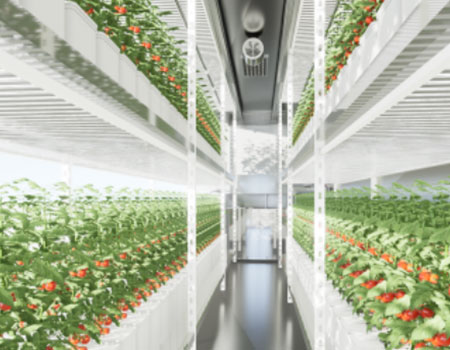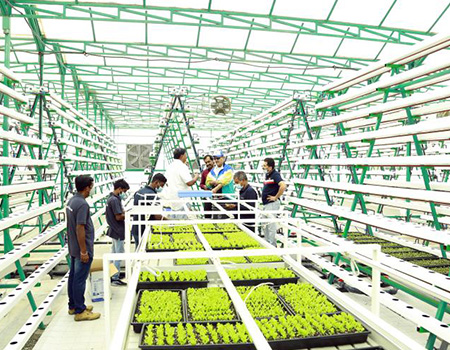Now many people grow vegetables with hydroponic technology, and some people are skeptical about hydroponic vegetables, thinking that hydroponic vegetables are unhealthy, or have no nutrition, and are not as good as traditional ones. We can introduce hydroponic vegetables in detail for you.
-Soilless cultivation technology
Before introducing hydroponic vegetables, let's talk about soilless cultivation technology. Soilless cultivation refers to a kind of planting technology that scientifically and rationally prepares all the nutrients needed for the normal growth of crops into a nutrient solution according to the proportion and quantity of plant growth, and allows the roots to absorb nutrients in the nutrient solution.
-Characteristics of Hydroponic Vegetables
1. The root system is mainly milky white fine roots, which are used to absorb water and nutrients;
2. Hydroponic vegetables are healthier, and no chemical fertilizers and pesticides are used in the planting process;
3. The growth cycle is short and the yield is high.
4. Hydroponic vegetables taste better. In the greenhouse, the various environmental conditions for the growth of hydroponic vegetables are at or close to their optimum growth requirements, and the nutrient supply of hydroponic vegetables is sufficient and timely, and the photosynthesis of plants and the synthesis of other nutrients are higher than those of soil cultivation. The more, the better the natural taste.
- Why are hydroponic vegetables safer?
Hydroponic vegetables are generally grown indoors, which isolates the pests and pathogenic bacteria from the outside world (including air and soil). Therefore, no pesticides and chemical fertilizers can be used during the planting process. Since no soil is used for planting, there is no pollution of heavy metals and other pollutants in soil and water.
- How nutritious are hydroponic vegetables?
Hydroponic vegetables are rich in nutrients. The hydroponic nutrient solution required for the growth of hydroponic vegetables can be reasonably allocated according to the needs of different crops and different growth stages of the same crop. The mineral nutrient elements in the nutrient solution regulate the supply of nutrients according to different crops and different growth periods. Hydroponic vegetables are more nutritious because the nutrient supply during the growth process is more sufficient and timely than that of soil cultivation.
After reading these introductions, have you dispelled your doubts about hydroponic vegetables? If you are interested in hydroponic vegetables now, you can plant them. Generally, you can grow vegetables indoors with a hydroponic system, and you can harvest them in about a month.
-Ebb and flow table system
The vertical ebb and flow table system can grow a variety of hydroponic vegetables, whether it is green leafy vegetables or vegetables with small roots, basically everything can be grown. Shown below is the lettuce we've grown indoors with the ebb and flow table system, doesn't it look pretty?
-Household hydroponic tower system
This hydroponic tower system looks like a small tree with many "branches" where you can grow leafy greens like lettuce, mint, cilantro, and more.
Some of our friends grow hydroponic vegetables for sale. For places where the climate is not suitable for soil cultivation, hydroponic cultivation is particularly advantageous. The grown hydroponic vegetables can be sold to restaurants, hotels and supermarkets. They are fresh and healthy, and are popular with everyone.

.jpg)
.jpg)





.jpg)


